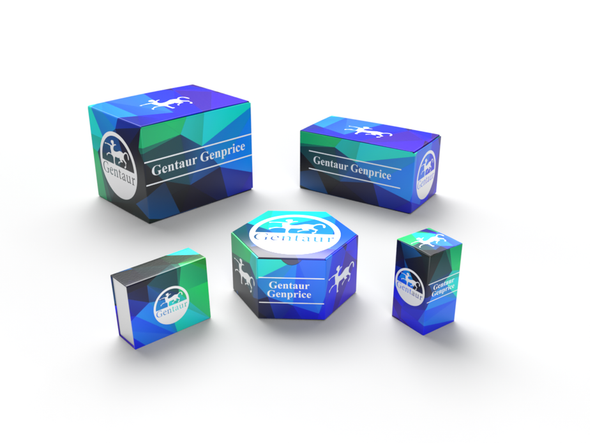740
Mouse Serine/threonine-protein kinase 11 (STK11) ELISA Kit | AE15611MO
- SKU:
- 740-AE15611MO
- Availability:
- Usually ships in 5 working days
Description
Mouse Serine/threonine-protein kinase 11 (STK11) ELISA Kit | AE15611MO | Gentaur UK, US & Europe Distribution
Species Reactivity: Mouse (Mus musculus)
Abbreviation: STK11
Alternative Name: LKB1; PJS; polarization-related protein LKB1|serine/threonine protein kinase 11
Application: ELISA
Range: 0.156-10 ng/mL
Sensitivity: 0.051 ng/mL
Intra-Assay: ≤5.8%
Inter-Assay: ≤7.8%
Recovery: 0, 95
Sample Type: Serum, Plasma, Other biological fluids
Detection Method: Sandwich
Analysis Method : Quantitive
Test Principale: This assay employs a two-site sandwich ELISA to quantitate STK11 in samples. An antibody specific for STK11 has been pre-coated onto a microplate. Standards and samples are pipetted into the wells and anySTK11 present is bound by the immobilized antibody. After removing any unbound substances, a biotin-conjugated antibody specific for STK11 is added to the wells. After washing, Streptavidin conjugated Horseradish Peroxidase (HRP) is added to the wells. Following a wash to remove any unbound avidin-enzyme reagent, a substrate solution is added to the wells and color develops in proportion to the amount of STK11 bound in the initial step. The color development is stopped and the intensity of the color is measured.
Product Overview: LKB1 is a primary upstream kinase of adenine monophosphate-activated protein kinase (AMPK), a necessary element in cell metabolism that is required for maintaining energy homeostasis. It is now clear that LKB1 exerts its growth suppressing effects by activating a group of other ~14 kinases, comprising AMPK and AMPK-related kinases. Activation of AMPK by LKB1 suppresses growth and proliferation when energy and nutrient levels are scarce. Activation of AMPK-related kinases by LKB1 plays vital roles maintaining cell polarity thereby inhibiting inappropriate expansion of tumour cells. A picture from current research is emerging that loss of LKB1 leads to disorganization of cell polarity and facilitates tumour growth under energetically unfavorable conditions.
Stability: The stability of ELISA kit is determined by the loss rate of activity. The loss rate of this kit is less than 5% within the expiration date under appropriate storage condition. The loss rate was determined by accelerated thermal degradation test. Keep the kit at 37°C for 4 and 7 days, and compare O.D.values of the kit kept at 37°C with that of at recommended temperature. (referring from China Biological Products Standard, which was calculated by the Arrhenius equation. For ELISA kit, 4 days storage at 37°C can be considered as 6 months at 2 - 8°C, which means 7 days at 37°C equaling 12 months at 2 - 8°C) .






